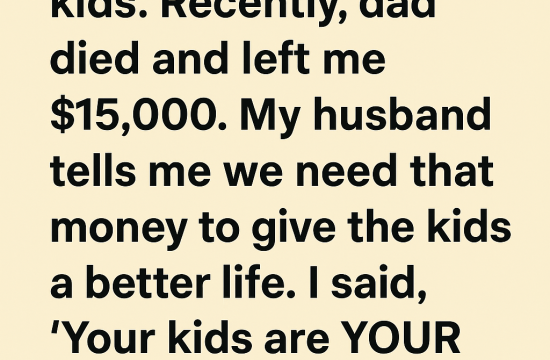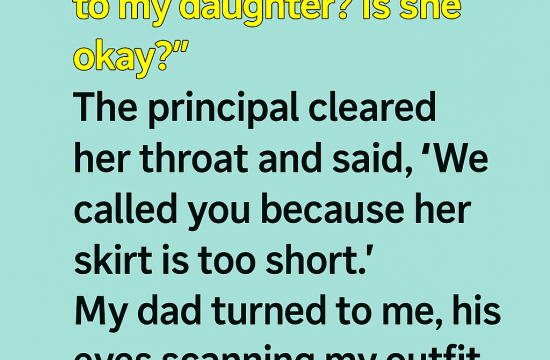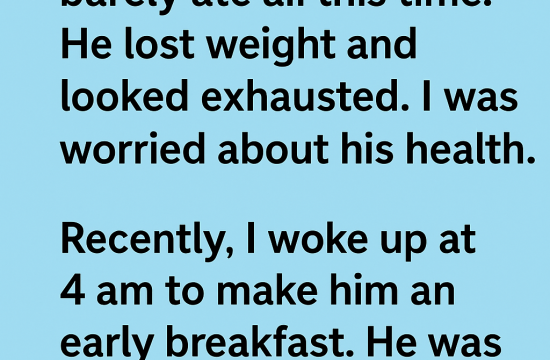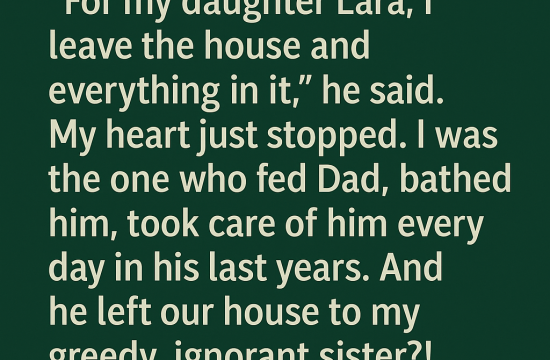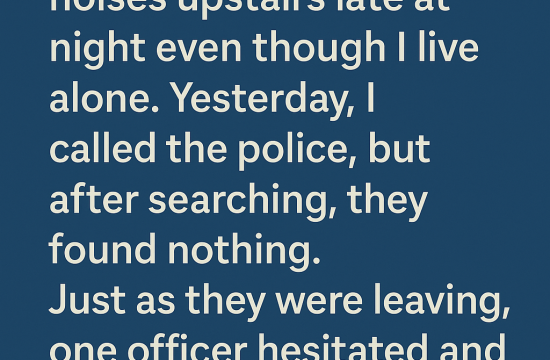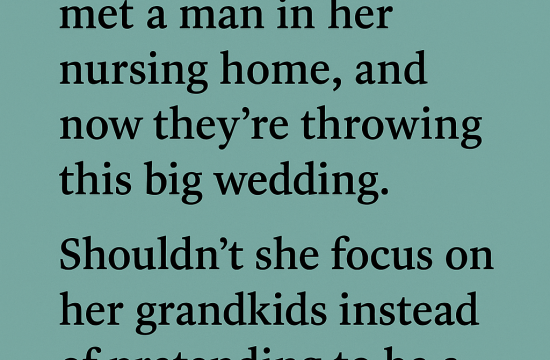Hey everyone! Just your average new dad Edward here, sleep-deprived and running on cuddles (because hello, endless diaper changes!), but utterly smitten with my 8-week-old daughter, Lily.
She’s a tiny peanut with the roundest cheeks and the silkiest hair you can imagine. Being a parent is pure magic—the gurgles, the coos, the way she lights up at your voice… it’s a whole new symphony of love.
But nobody really warns you about the shadow that follows childbirth. The postpartum period hit my wife, Sarah, like a truck. Dark circles, bone-deep exhaustion, and that invisible cloud that sometimes dims her natural radiance. She’s strong, but she’s vulnerable too. And what happened last week shook her in a way I will never forgive.
This is about the day a smug bank consultant ridiculed my postpartum wife—and the little revenge I staged to remind him that words can cut deep.
Sarah had to run to the bank to handle some paperwork. Nothing dramatic—just boring grown-up stuff. She slipped into a simple dress, tied her hair into a messy ponytail, and forced a smile. Not the carefree one from before, but the kind of smile you hope fools the world.
That night, though, the mask had fallen. She sat across from me, tear tracks glistening on her cheeks as she whispered what happened.
The consultant—Mark—looked at her ID, then at her face, and smirked. Loud enough for the whole room, he mocked:
“Wow, this must be an old photo. Motherhood’s been… DIFFERENT for you, huh?”
Sarah’s voice cracked when she told me: “I was mortified, Ed. I wanted to vanish. But I had Lily in my arms, so I just clutched her tighter and pushed through.”
Hearing that broke something in me. My Sarah—my beautiful, resilient Sarah—had been reduced to tears by a cheap shot from a stranger who should’ve known better.
I didn’t sleep that night. Fury buzzed in my chest like a hornet’s nest. I knew I couldn’t just storm in and yell; that would accomplish nothing. No, this called for something… strategic.
A few days later, I walked into that same bank with a briefcase in hand and a plan. Inside were neatly stacked bundles of paper designed to look like cash—convincing enough from a glance.
Mark was behind the counter, slick hair, smug face, and that cursed name tag. I approached him with a firm handshake.
“I’m considering transferring a significant sum here,” I said, lowering the briefcase onto the counter.
For the first time, Mark’s face lit up. “Of course, sir. How much are we talking?”
“Enough to make an impact,” I replied, cracking the briefcase just enough for him to glimpse the stacks. “Five million. But before anything, I want to meet your manager.”
His eyes widened like a slot machine jackpot. He practically sprinted to fetch Mr. Reynolds, the manager.
The manager arrived, polished but suddenly cautious when he saw the briefcase.
“Good afternoon, sir. How can we assist?”
I leaned in. “Customer service is everything to me. My wife visited this branch last week and left in tears—mocked for looking ‘different’ after giving birth.”
The words hung in the air like a guillotine. Mark’s smugness dissolved into sheer panic. The manager’s face drained of color.
“I… apologize deeply,” Mr. Reynolds stammered. “This is not how we treat our clients.”
“Trust,” I said, snapping the briefcase shut, “is the foundation of banking. And if you can’t guarantee basic human decency, then my money—real or not—doesn’t belong here.”
The manager turned on Mark, who looked ready to sink into the floor. I didn’t wait for excuses. I picked up the briefcase and walked out, leaving silence and shame in my wake.
When I got home, Sarah asked, “What did you do?”
I kissed her forehead, looked into her tired but still beautiful eyes, and said, “Nothing that needs explaining. Just know—no one talks to you like that and gets away with it.”
And for the first time in days, she smiled. A real one.




